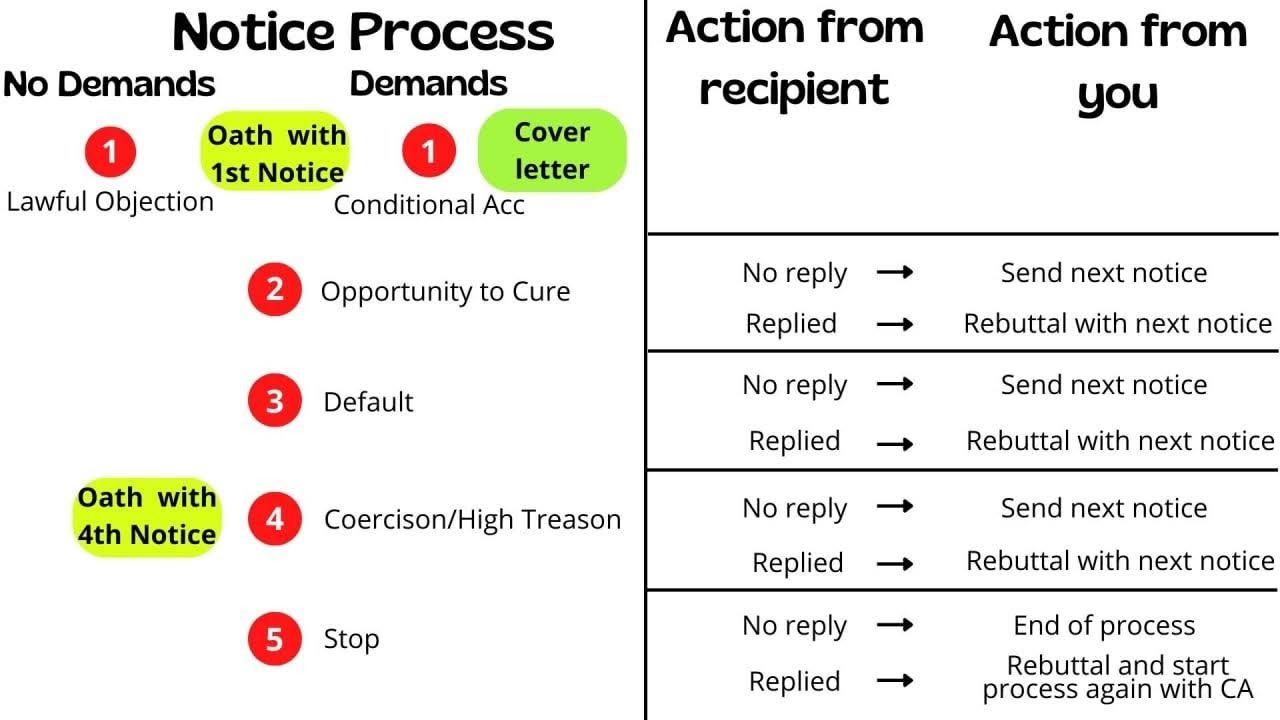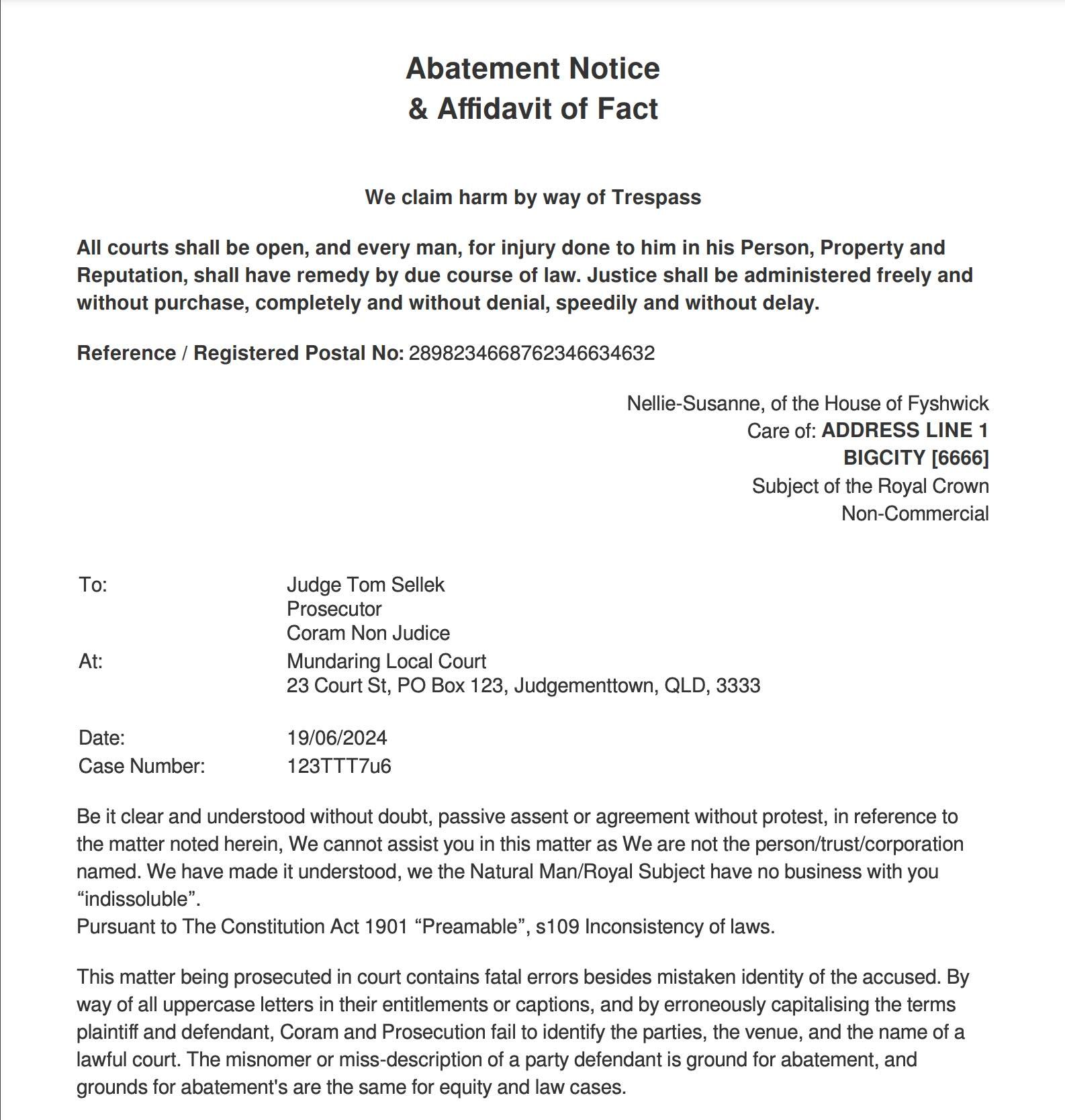Below are various sections you can utilise to respond to Billers who are hesitant to accept your BoE and PN. You will find the original on the Commonwealth Consolidate Acts – Bills of Exchange Acts 1909.
Please also keep an eye on the Notice Process and make sure you keep a copy of all of your communications.
30 Procuration signatures
A signature by procuration operates as notice that the agent has but a limited authority to sign, and the principal is only bound by such signature if the agent in so signing was acting within the actual limits of his or her authority.
31 Person signing as agent or in representative capacity
- Where a person signs a bill as drawer, indorser, or acceptor, and adds words to his or her signature, indicating that he or she signs for or on behalf of a principal, or in a representative character, he or she is not personally liable thereon; but the mere addition to his or her signature of words describing him or her as an agent, or as filling a representative character, does not exempt him or her from personal liability.
- In determining whether a signature on a bill is that of the principal or that of the agent by whose hand it is written, the construction most favourable to the validity of the instrument shall be adopted.
34 Holder in due course
- A holder in due course is a holder who has taken a bill, complete and regular on the face of it, under the following conditions, namely:
- That he or she became the holder of it before it was overdue, and without notice that it had been previously dishonoured, if such was the fact; and
- That he or she took the bill in good faith and for value, and that at the time the bill was negotiated to him or her he or she had no notice of any defect in the title of the person who negotiated it.
- In particular the title of a person who negotiates a bill is defective within the meaning of this Act when he or she obtained the bill, or the acceptance thereof, by fraud, duress, or force and fear, or other unlawful means, or for an illegal consideration, or when he or she negotiates it in breach of faith, or under such circumstances as amount to a fraud.
- A holder (whether for value or not) who derives his or her title to a bill through a holder in due course, and who is not himself or herself a party to any fraud or illegality affecting it, has all the rights of that holder in due course as regards the acceptor and all parties to the bill prior to that holder.
35 Presumption of value and good faith
- Every party whose signature appears on a bill is prima facie deemed to have become a party thereto for value.
- Every holder of a bill is prima facie deemed to be a holder in due course; but if, in an action on a bill, it is admitted or proved that the acceptance, issue, or subsequent negotiation of the bill is affected with fraud, duress, or force and fear, or illegality, the burden of proof is shifted, unless and until the holder proves that, subsequent to the alleged fraud or illegality, value has in good faith been given for the bill.


